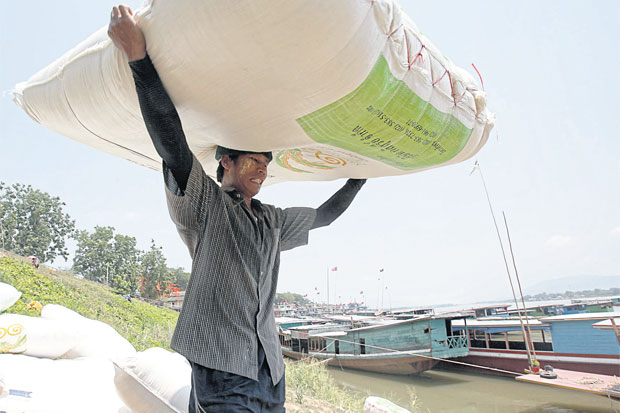
Japan has agreed to provide US$21 million worth of aid to help upgrade human resources and workers in countries within the Greater Mekong Subregion (GMS) for three years.
Commerce Minister Apiradi Tantraporn said the aid covers various sectors such as engineering, design, management and low-skilled labour in the GMS.
Under the aid programme, Japan will use Thailand as a human resource development centre for neighbouring Cambodia, Laos and Myanmar.
Training courses will be made available at Thai universities. Japanese and Thai specialists will be dispatched to provide training for workers in Cambodia, Laos and Myanmar.
The programme is part of an initiative by Japanese Prime Minister Shinzo Abe, who vowed at the Asean Business and Investment Summit last November to support development of 40,000 workers in Asia over three years.
The scheme also complies with a memorandum of intent signed by the Thai Commerce Ministry and Japan in November.
Mrs Apiradi, who yesterday met Tatsuya Terazawa, director-general of the Trade and Economic Cooperation Bureau under the Economy, Trade and Industry Ministry of Japan, said Thai officials have been asked to help by easing access for foreign workers' work permits and entry visas.
She said the aid programme is expected to help ease Thailand's labour shortage and support special economic zone development as well as upgrade Thai labour standards.
However, Mrs Apiradi said more discussions are still needed to consider which industries and areas of human resources should be prioritised, and where training programmes should be organised.
In July 2015 at the seventh Mekong-Japan Summit, the Japanese government pledged ¥750 billion ($6.1 billion) for assistance to five GMS countries -- Cambodia, Laos, Myanmar, Thailand and Vietnam -- as part of a new strategy for Mekong-Japanese cooperation during 2016-18.
The scale of this Official Development Assistance is the largest since the summit was launched in 2009, with ¥500 billion offered in 2009 and ¥600 billion in 2012.
This move comes amid China's active efforts to promote the Asian Infrastructure Investment Bank, which Japan sees as a challenge to the Asian Development Bank it founded.
Japanese investors recently raised their concerns over the skills of Thai workers, who they say fail to meet the needs of major companies, especially car makers and automotive suppliers that use the country as an Asean hub.
The Thai government must invest more in education to produce a labour force that can match the demands of Japanese industry, it said.
Shiro Sadoshima, the Japanese ambassador to Thailand, said while Thailand has a clear policy to improve vocational skills and cultivate skilled labour, so far those skills are not up to standard.
Mr Sadoshima said Japan adjusted its educational system and allocated funds for training to create a skilled labour force capable of meeting rising demand amid industrial expansion, especially after the government instituted numerous policies to promote investment.
The ambassador's remarks echoed those of major Japanese manufacturers such as Toyota, which has been investing in Thailand for decades.
